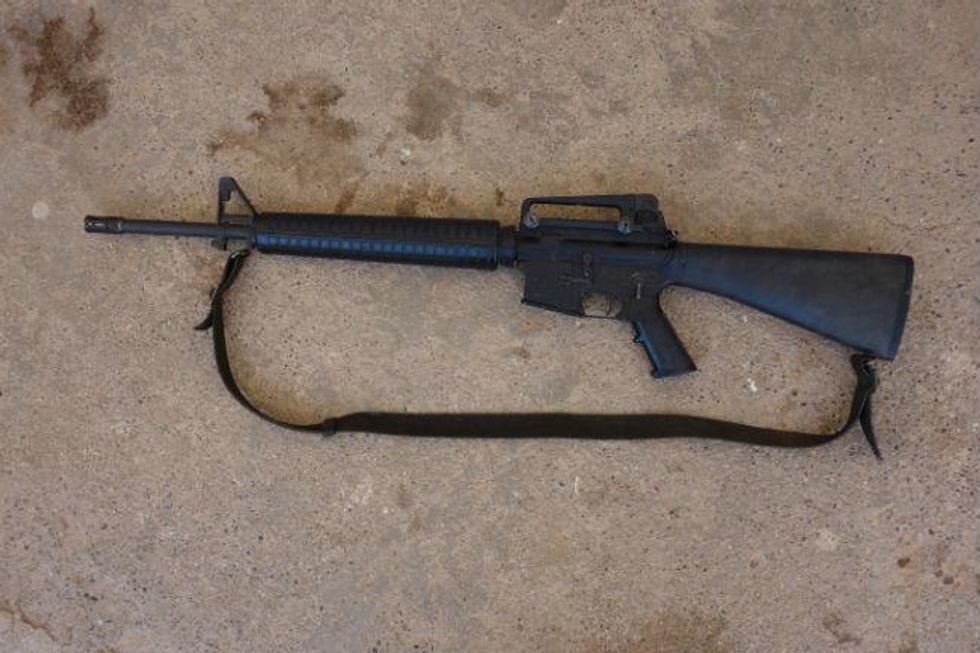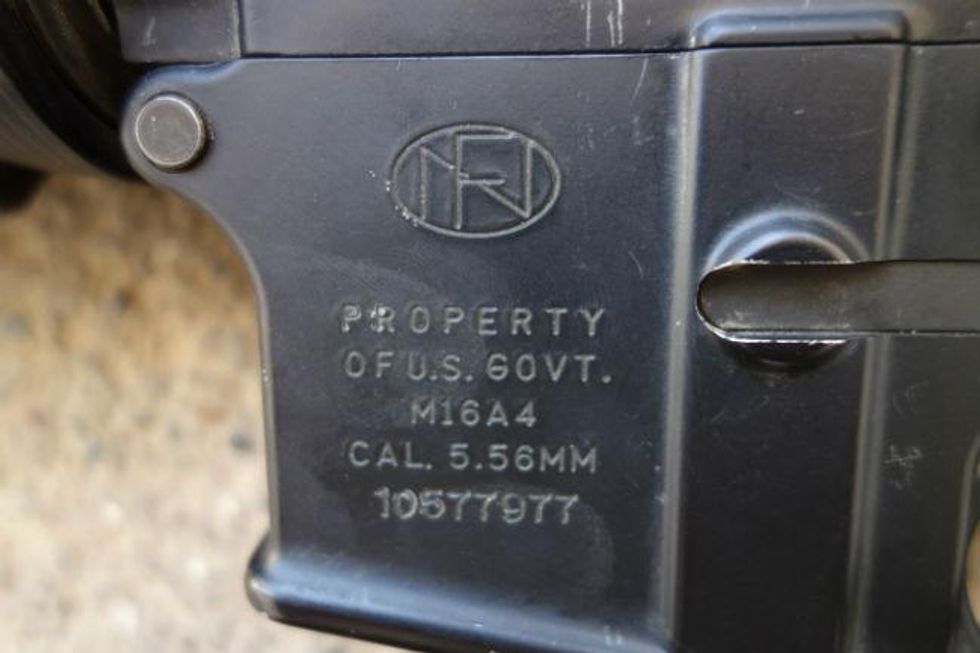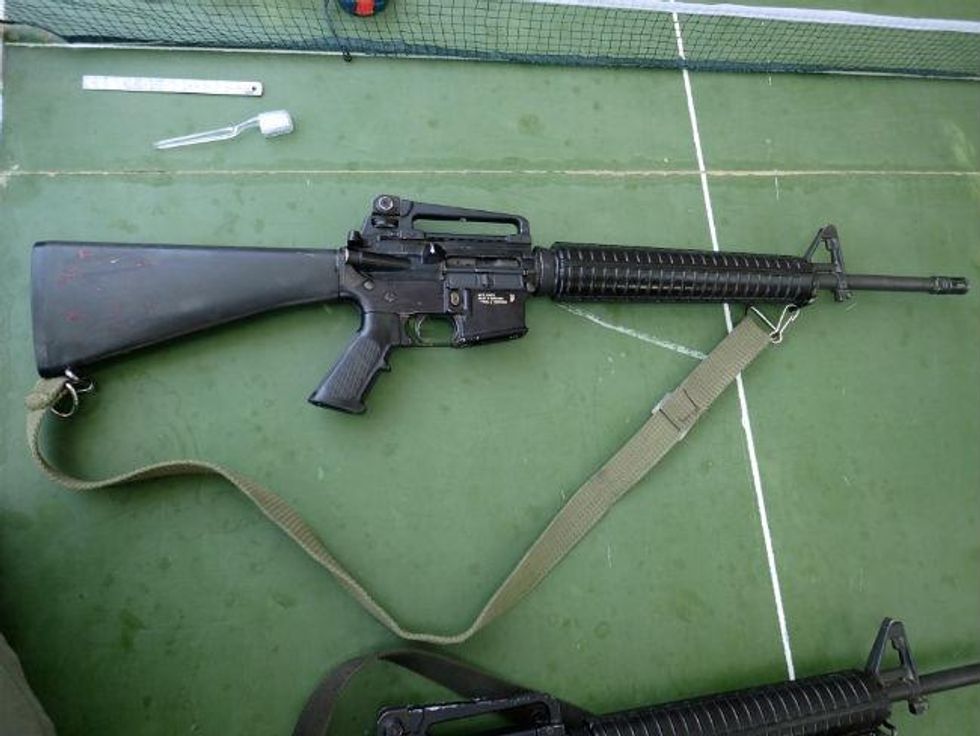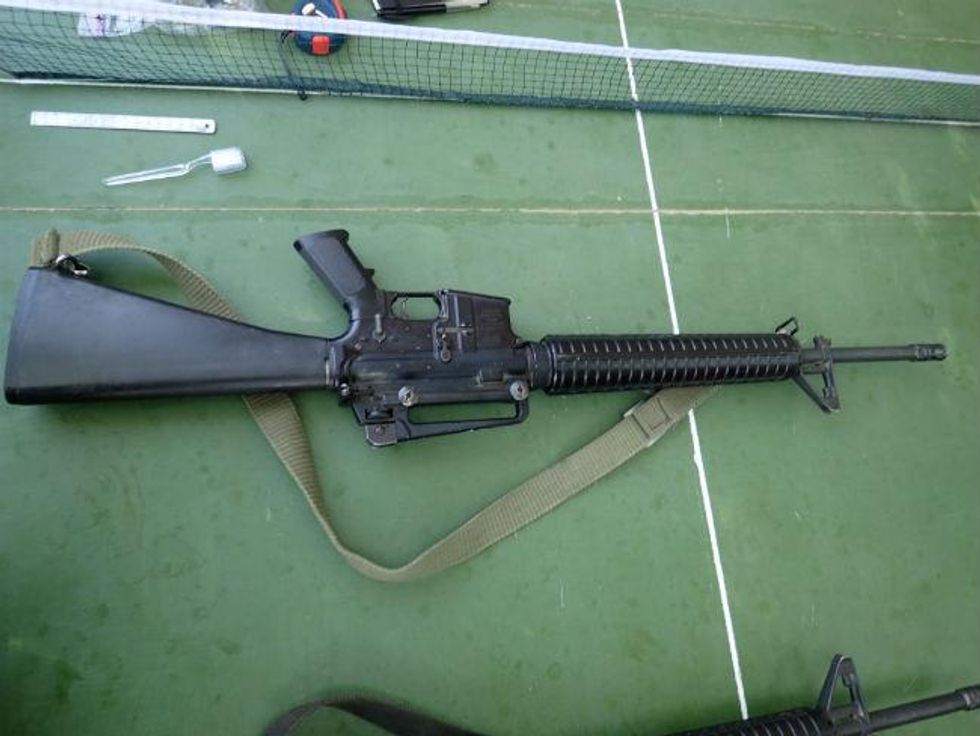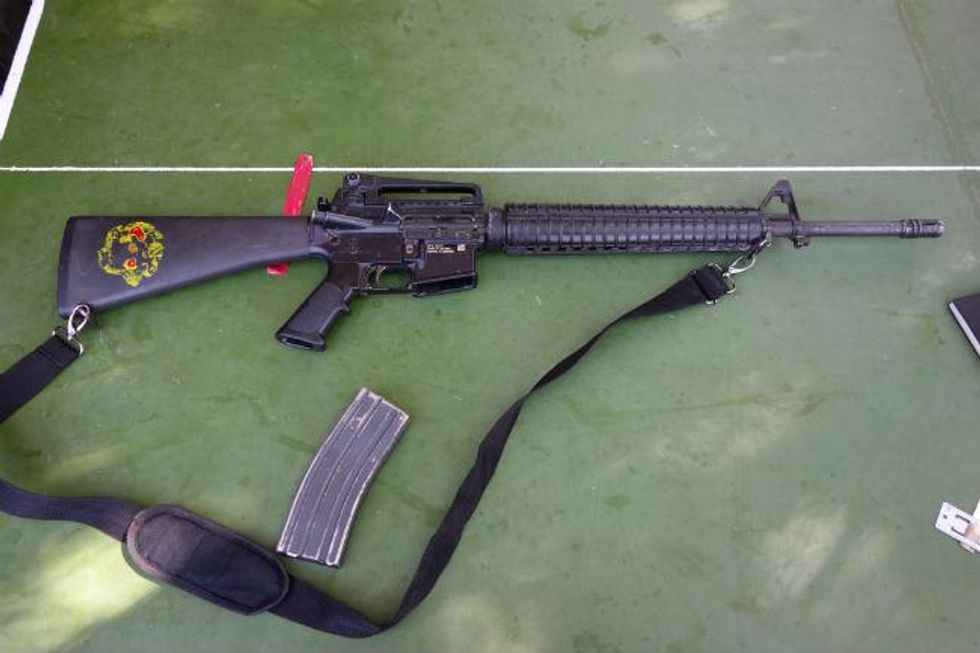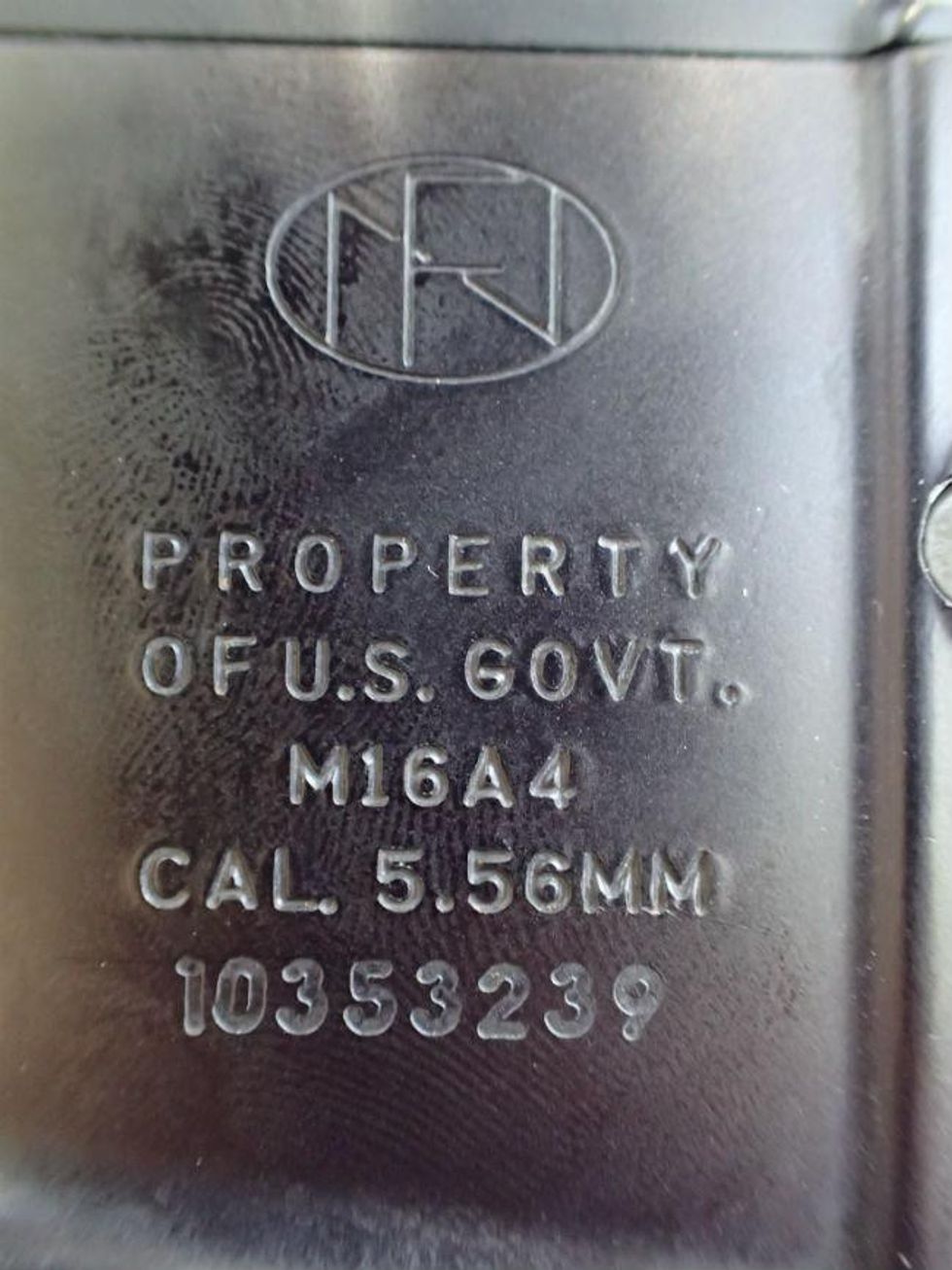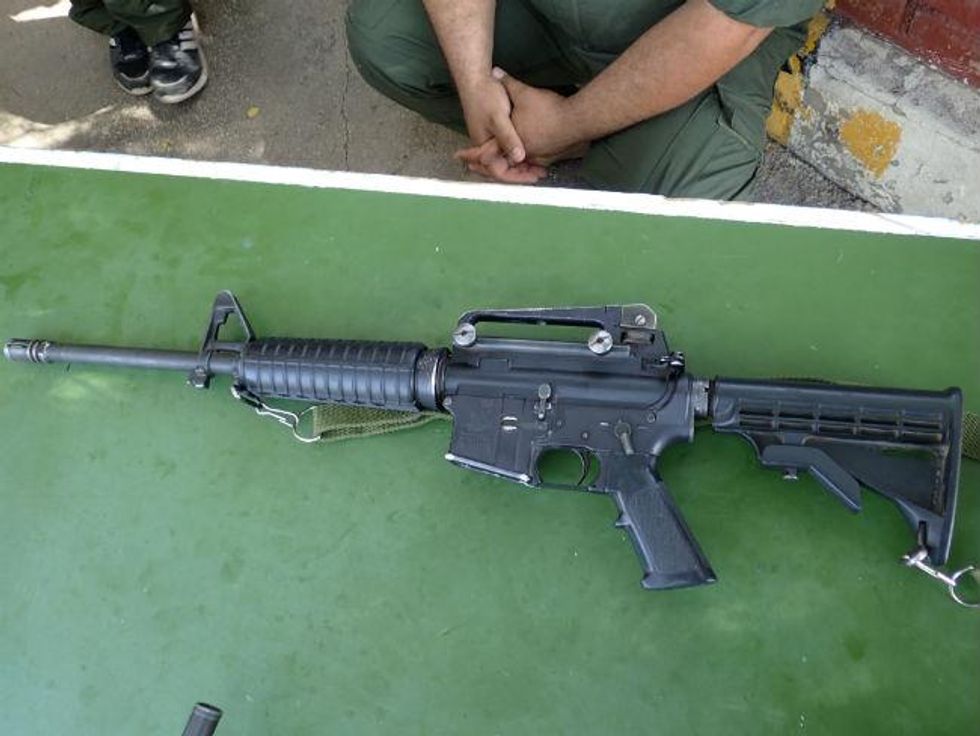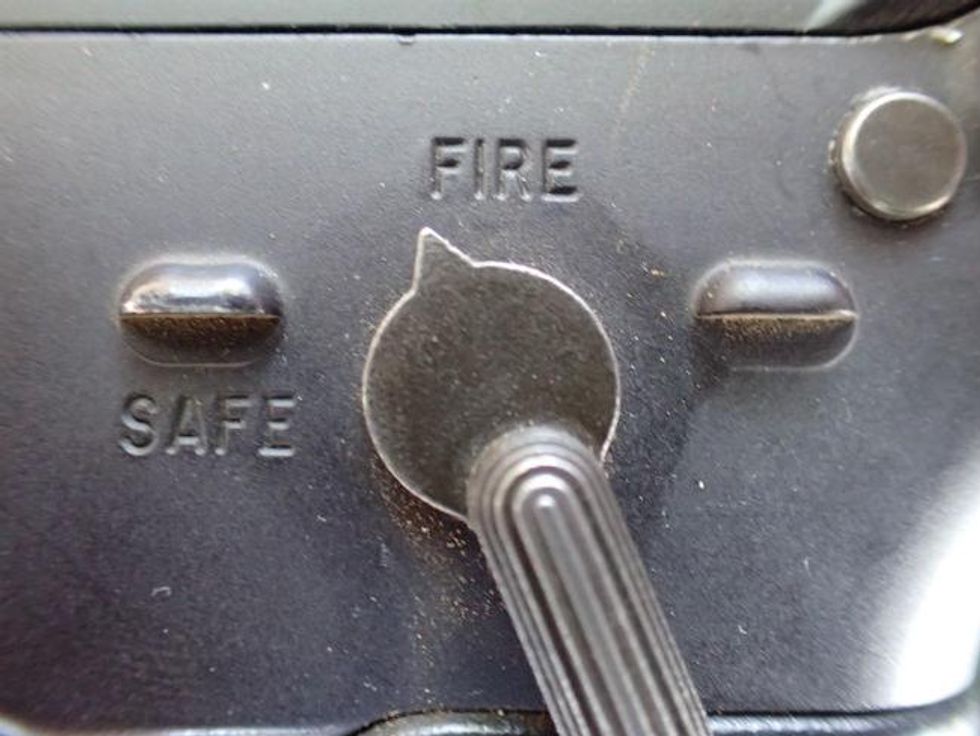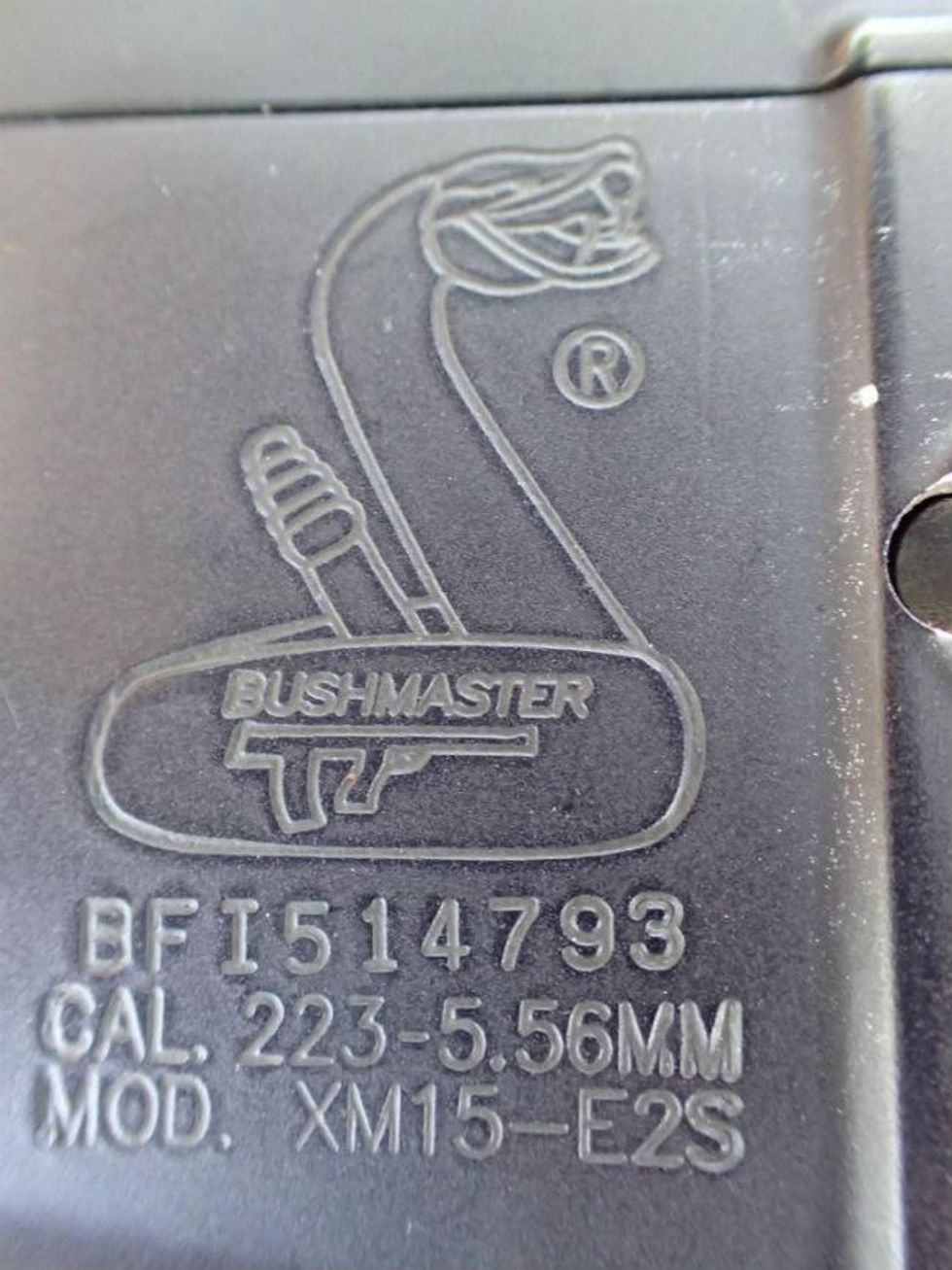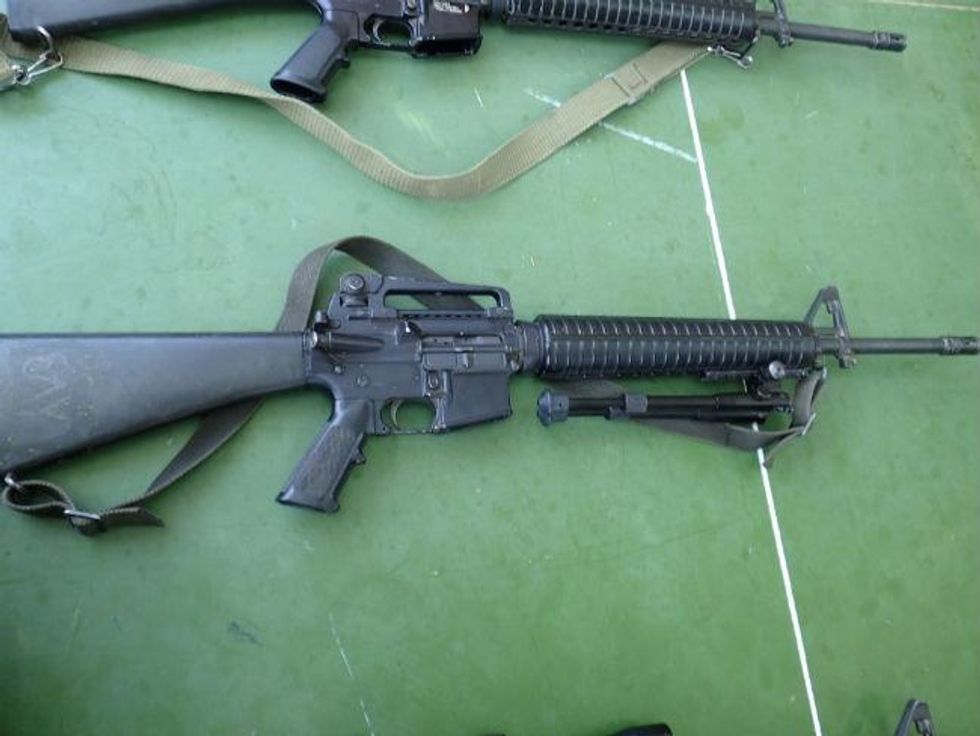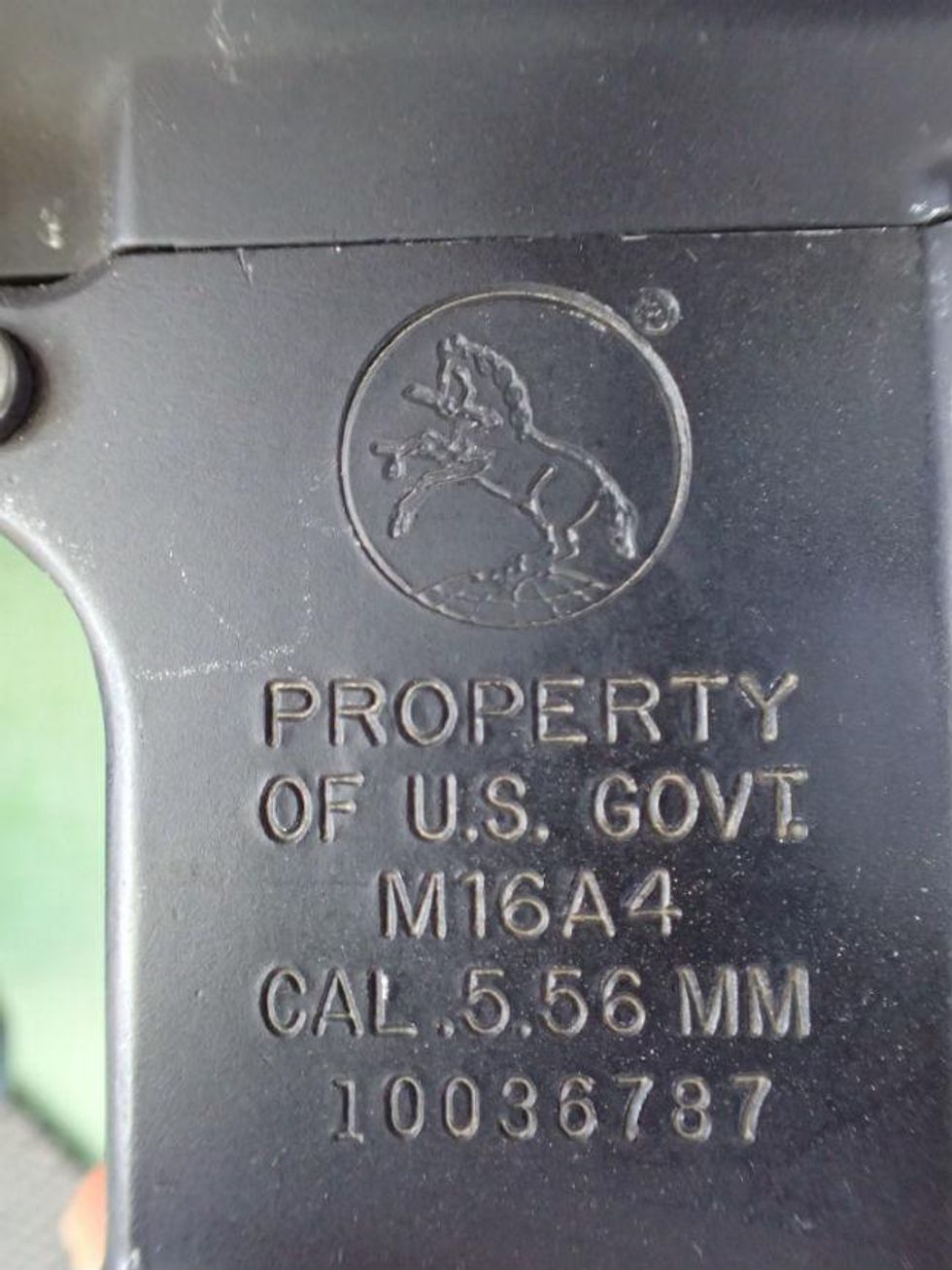News
Matthew Champion
Sep 09, 2014
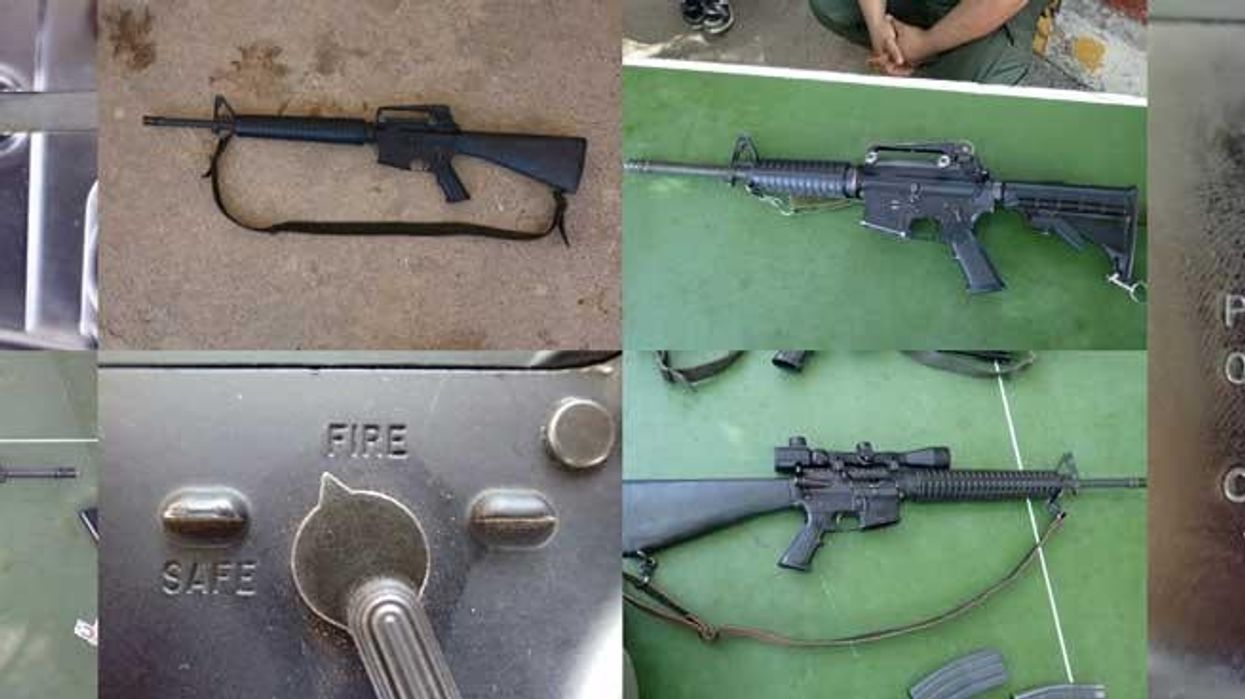
Conflict Armament Research (CAR) is an EU-funded group that seeks to establish the supply chains of weapons in conflicts around the world.
The London-based organisation spent time with Kurdish forces fighting the Islamic State in Syria and Iraq to document the arms the jihadists were using.
In some instances CAR investigators were able to assess weapons within hours of them being captured by the YPG and Peshmerga, having been abandoned by Isis fighters.
US-made M16A4 5.56 x 45 mm assault rifle manufactured by FN Manufacturing. Captured in Avdoké, Syria, on July 26.
James Bevan, CAR director, told i100 that around 30 to 40 per cent of arms his team were able to document were US-made, reflecting the fact that Isis captured most of its weaponry from the Iraqi army when it made stunning territorial gains earlier this year.
Unusually, many of the older weapons captured in Syria, including Soviet-era AK47s, had their serial numbers welded off.
Mr Bevan said his team were thankful for whoever had sought to cover their tracks by providing such an obvious "calling card" for his investigators.
Three US M16A4 5.56 x 45 mm assault rifles, manufactured by FN Manufacturing. Captured in the Sinjar Mountains, Iraq, on August 4.
The CAR team also discovered that M79 rockets that Saudi Arabia supplied to rebels fighting Bashar al-Assad had found themselves into Isis hands.
Austrian, Belgian, Chinese and Croatian weapons were also recovered but no British-made weapons were observed - the UK having long abandoned exporting small arms.
One US XM15-E2S 5.56 x 45 mm semi-automatic rifle, manufactured by Bushmaster Firearms International. Captured in the Sinjar Mountains, Iraq, on August 4.
Mr Bevan said CAR's mission was to "understanding, quantify, expose".
He gave the example of Chinese weapons manufacturers selling arms to Sudan only for Khartoum to break their end-user licence agreement and supply them to rebels in Somalia.
One US M16A4 5.56 x 45 mm assault rifle, manufactured by Colt Defense. Captured in the Sinjar Mountains, Iraq, on August 4.
"This is all happening under the radar and unless you get on the ground you can't uncover it," Mr Bevan said.
"There is very little consideration of the long-term impact of supplying weapons to countries that might not be able to keep them secure, at which point such an initiative becomes counter-productive."
Meanwhile...
You can read the full CAR report here.
(Pictures: Conflict Armament Research)
More: Who beheads more people: Isis or the government of Saudi Arabia?
Top 100
The Conversation (0)
